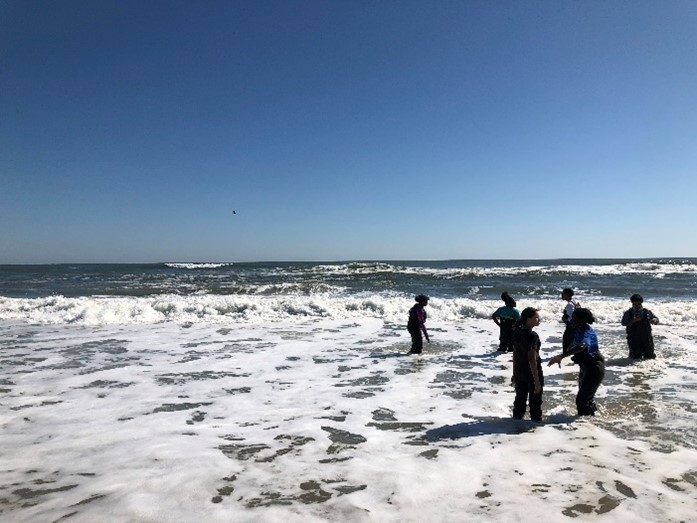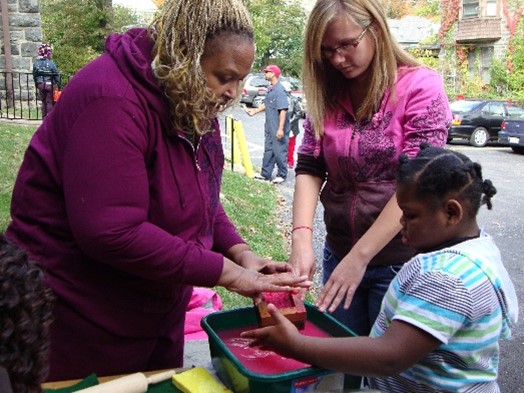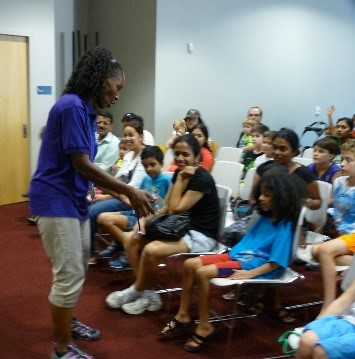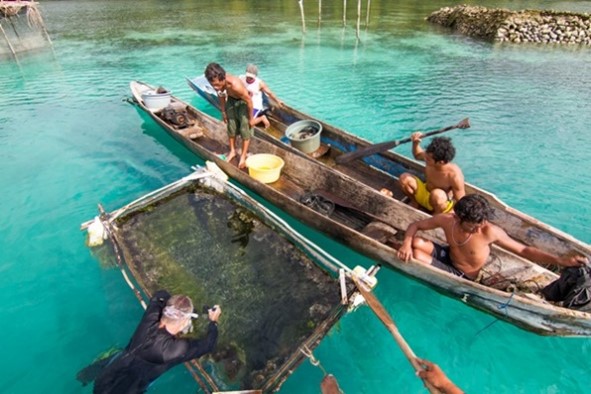our history
The Center for Aquatic Sciences was founded in 1989 as the New Jersey Academy for Aquatic Sciences. Originally created to run operations of the new New Jersey State Aquarium, the Center has grown and evolved to meet the needs of our Camden community over the years. When the New Jersey State Aquarium became Adventure Aquarium in 2005, the Center ceased to run aquarium operations, but continued to spearhead marine science focused research, education, and volunteerism. The Center changed its name to the Center for Aquatic Sciences in 2014 to reflect our commitment to serving as both a resource and a catalyst for change in local waterways and their associated ecosystems.
Today, the Center delivers innovative, engaging environmental science programming for families, students, teachers, and communities. Our flagship Community And Urban Science Enrichment (CAUSE) Program serves as a regional leader and national benchmark for STEM-based youth development employing a community service, small cohort model. The Center’s fishing and kayaking programs engage 400+ residents per year with Camden parks and green spaces. Through partnerships with schools in Camden and Philadelphia, the Center delivers science enrichment and afterschool programming to thousands of students each year.


The Center’s most recent hands-on science collaboration, NaturePlayShare! is a community-museum partnership that fosters emerging literacy and STEM skills in local Southeast Asian-, African-, Latinx- and Haitian American immigrant children ages 3-8 and their family members. Funded by the William Penn Foundation, NaturePlayShare! brings together 3 of Philadelphia’s Logan-Olney neighborhood not-for-profit community-based organizations: Creative Kids Club, Falomi Club, and the Indochinese American Council, the Center for Learning in Out-of-School Environments at the University of Pittsburgh, the Children’s Literacy Initiative (CLI), Unite for Literacy, and the Academy of Natural Sciences at Drexel University.
Past Conservation and Research Initiatives
PISEC projects have included Families Exploring Science Together (FEST), a family-based science education program targeted to underserved children and their parents; the Community Ambassadors in Science Exploration (CASE) program, a new model for encouraging the appreciation and understanding of science among a set of local communities; and Communities of Learning for Urban Environments and Science (CLUES), a 5-year program that focused on developing community members as informal science organizers and educators, teaching science to families in their communities in the Philadelphia-Camden region.
Past Conservation and Research Initiatives


The Center’s research and conservation work has included an international program that studied and sought to protect the threatened Banggai cardinalfish Pterapogon kauderni and its coral reef habitat in Indonesia. Established in 1997 and led by ichthyologist Dr. Alejandro Vagelli, this initiative resulted in the Banggai cardinalfish being listed as an endangered species on IUCN Red List of Threatened and Endangered Species. Dr. Vagelli’s research at the Center also included the reproductive methods of moon jellies Aurelia aurita and the biology of Delaware Bay key species, the horseshoe crab Limulus polyphemus.
In the 2010s, the Center formed a collaboration including Urban Promise Academy, the Delaware Riverkeeper Network and the Camden County Municipal Utilities Authority whose goal was to monitor and record water quality trends in Camden and the region. The collective, called Partners Protecting our Water, has disbanded, but CAUSE youth continue to monitor waterways in Camden to further the cause of urban waterway monitoring and advocate for healthy habitats and access to on-water recreation in the city.

The Center has a commitment to underserved inner-city communities in both Camden and Philadelphia. Since 1992, the Center has been a founding member of the Philadelphia-Camden Informal Science Education Collaborative (PISEC). PISEC members include the Academy of Natural Sciences at Drexel University, the Franklin Institute Science Museum, and the Philadelphia Zoo. PISEC has operated continuously for more than three decades during which it has developed and delivered several long-term projects funded by the National Science Foundation to connect underserved families with informal learning opportunities. PISEC has provided hands-on science opportunities to over 50,000 people in Camden and Philadelphia, serving families that speak thirteen different languages and reaching people in every zip code in Philadelphia and Camden City.

The Center was an active member of the Coastal America Learning Center Network, an interagency federal partnership that aimed to protect, preserve, and restore national coastal ecosystems. The Center joined a divergent network of marine educational institutions to address growing coastal problems by creating a better-informed public.
